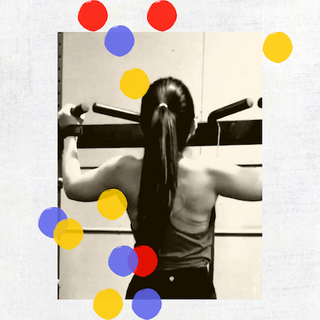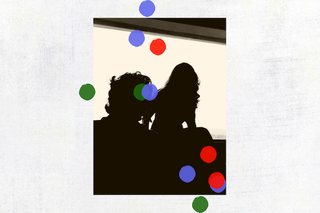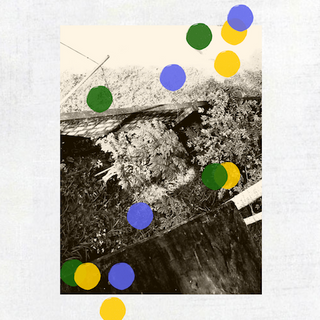
India Dissents: How People Resisted Prejudice, Patriarchy at Home in 2020
“Choosing inter-caste marriage is a way of dissent.”

The Swaddle asked people across India how they spoke truth to power, found their voices, and stood up for themselves in 2020. In this installment, how four people fought against patriarchal norms and bigotry in their family.
I come from an upper-middle-class conservative family, who are very status-conscious. My father is the first bureaucrat in our family and, since then, we’ve always had a fascination with the service. It was decided a long time ago that when I get married, it’ll only be to a bureaucrat. I also grew up wanting to be one.
My father always had very narrow views when it came to me. He would joke about me finding a guy for myself; but in reality, they were not even okay with me talking to guy friends. So when the time came for me to get married, they found a bureaucrat for me. Despite me telling them so many times that I was not interested in marrying him, they didn’t listen. My opinions were undermined, as I was a girl who never talked back. So they thought I didn’t understand the situation. They told me that if I missed this opportunity in life, I wouldn’t get it again, I wouldn’t be respected, and so on. I finally decided to tell the guy directly that I wasn’t interested. When I spoke to the guy, he was very understanding and said he would decline the proposal. But he didn’t go through with his promise and instead told on me. My family found out and they were really upset and angry with me. They ganged up on me and began emotionally abusing and threatening me.
I’m still coming to terms with how my family treated me then. It made me realize how even so-called educated people also have a problem with women’s choice. I’m in love with someone else who is not a bureaucrat. I’m still fighting for what I want. I’m not going to give up, for their wants to be forced on me.
— S.S., 30
*
I didn’t realize how casteism robbed people of jobs until I witnessed it with my own eyes. My mother got to know that one of our house helpers was a Dalit — the word she used was “harijan.” The helper was in charge of cooking food up till that day and her cooking was delicious, but when my parents got to know about the caste, her food made them gag. My mother tried to [fire her from] the job even when she was perfectly capable and better than others at it. I stood my ground, I said that I will go on a hunger strike if they fire her. I explained to them calmly how this is unconstitutional and inhumane. It took weeks of me protesting, but I finally convinced them. The helper still remains employed in our house and cooks delicious food that is devoured by everyone.
— S.W., 16
*
My best friend and me of ten years finally realized we would like to spend the rest of our lives with each other last year. I am a Gujarati and he is a Maharashtrian. Our respective families knew each other as friends and were liked and appreciated. However, things changed when I finally spoke to my family about my wish to get married to him. The person and his qualities were replaced with details like his caste and his responsibilities, as they would be more important in deciding if I would be happy with him in future.
Ultimately, the question arose that with time also if we don’t agree with your choice what will you do? And I replied to them firmly that irrespective of whether their yes or no, I will marry the person I wish to. Whatever they want to think of their upbringing or their image in society or me being influenced by him, I don’t care and I am not ready to compromise my life for these things.
Choosing inter-caste marriage is a way of dissent as it goes against the false notion of family values and traditions that is going on in our society. Sometimes it almost feels like a crime even. But every decision has a price and for me, this is worth it.
— Dhvani, 28
*
I asked my mother not to keep a fast for my father simply because I feel that such patriarchal and reactionary norms should be done away with soon. I believe that such traditions glorify the sufferings of womxn, which is essentially a trait of a regressive patriarchal society. Furthermore, it sets a yardstick for an ideal womxn in the eyes of society. And the men are obviously not asked to reciprocate it. And if any man keeps a fast for his wife, he is extolled for the same thing.
Another reason for which I oppose such customs apart from the reasons I mentioned above is that such traditions also propound pseudoscientific notions that a wife keeping a fast for her husband would prolong his life. Having said that, my attempt to convince my mother not to keep the fast was a futile exercise and I wasn’t heeded much.
I didn’t try to coax her much and my opinions were brushed aside as I am ‘too young’ to understand such things. Since adults have a sacrosanct belief system it is cumbersome to change their minds. Nonetheless, I am trying to educate my siblings and friends about such things. That’s the least I could do.
— Nihal Kumar, 18
Related


India Dissents: How People Stood Up to Harassment, Abuse in 2020
